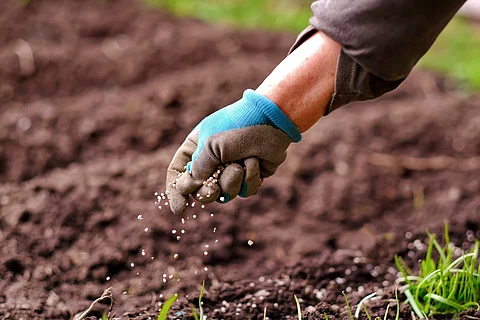

A growing chorus of opposition is building against sections of Kenya’s Seed and Plant Varieties Act, which prohibits the sharing and exchange of indigenous, uncertified and unregistered seeds. Farmers and activists have argued that these restrictions stifle agricultural innovation, threaten food security, and undermine the rights of small-scale farmers.
The law, enacted in 2012, aims to regulate the seed industry and protect intellectual property rights. Under the law, anyone found guilty of exchanging indigenous or unregistered seeds faces up to two years in prison, a fine of up to Ksh 1,000,000, or both.
In 2022, a case was filed against the act by farmers. The case is slowly gaining traction, with more farmers becoming aware of it. Lawyers’ body Law Society of Kenya (LSK) has also finally extended its support to the case, as the group can provide evidence that can further strengthen the case.
“Following the successful application of LSK and the Biodiversity Association of Kenya to be enjoined as interested parties in this matter, this court has given both parties 21 days to file their written submissions,” said Justice Francis Rayola of the Kenya High Court during the last hearing in the case.
Some agricultural lobby groups have criticised the law as punitive, serving only to protect large corporations' interests at the expense of smallholder farmers. Others see it as a ticking time bomb, ready to explode among farmers who are unaware of its existence.
Greenpeace Africa, an environmental activist organisation, and other interested parties and lobbying groups have accused Kenya’s government of failing to enact laws protecting indigenous seed ownership and intellectual property rights related to indigenous seed knowledge.
These laws are exposing farmers to exploitation by multinational corporations, said Eastus Ooko, Greenpeace Africa’s Mobilisation Officer. “The government is forfeiting its obligation to enact laws that protect and enhance Kenya's intellectual property rights over indigenous knowledge and genetic resources, as mandated by the Constitution,” he said.
The current seed laws reinforce neocolonialism by giving multinational corporations and profit-driven entities free rein to exploit local resources, he added.
Speaking to the media outside the court after LSK was allowed to join the case, a local farmer named Mary Wambua stated that despite the delay, the law body's involvement will strengthen the case and increase its visibility.
“We are here to support the petitioners. We have been using indigenous seeds since time immemorial. If we are now not allowed to sell or share those seeds, we will be forced to buy them from agrovets, which is expensive for ordinary farmers,” said Wambua.
Most farmers cannot afford to buy seeds every time they want to plant; others prefer storing and replanting, she pointed out. “Criminalising the sharing or selling of indigenous seeds will likely reduce indigenous agricultural activities, further impacting food production among small-scale farmers,” Wambua said.
For fear of being caught engaging in illegal activities, most smallholder farmers who are familiar with the law have slowed some of their agricultural activities, particularly those involving indigenous seeds, the farmer highlighted.
“In the long run, we will start experiencing food shortages among subsistence farmers. Those who can afford to buy seeds will sell their produce at inflated prices, raising the cost of living for all Kenyans. It should concern everyone. We hope the courts will fast-track this matter,” said Wambua.
Multiple studies show that 90 per cent of the seeds planted in Kenya come from informal seed systems. About 80 per cent of smallholder farmers in the country depend on informal seed systems, which include sharing seeds with other farmers and selling and buying at local markets, Greenpeace stated.
According to experts, denying these farmers the right to use their indigenous seeds is a theft of biological resources, leading to low food production and food insecurity.
Non-profit Seed Savers Network (Kenya) issued a statement saying seeds are part of African cultural heritage and farmers should be protected by the government as they store or propagate such seeds from one generation to another.
“Smallholder farmers love indigenous seeds for many reasons. Partly, this is because they have high nutritional value and are resistant to pests and diseases. Criminalising the exchange of seeds will also deny farmers an opportunity to improve their livelihoods,” the non profit said in a statement.
It added that the move might also encourage biopiracy and reduce plant genetic diversity, ultimately affecting the resilience of farming communities experiencing climate change impacts.
A decision by the Kenyan High Court is expected in the case in the coming months, after LSK's request to be enjoined as an interested party delayed it. The matter has piqued the interest of several stakeholders due to the potential landmark nature of the verdict and its ability to set agricultural jurisprudential precedent throughout the region.